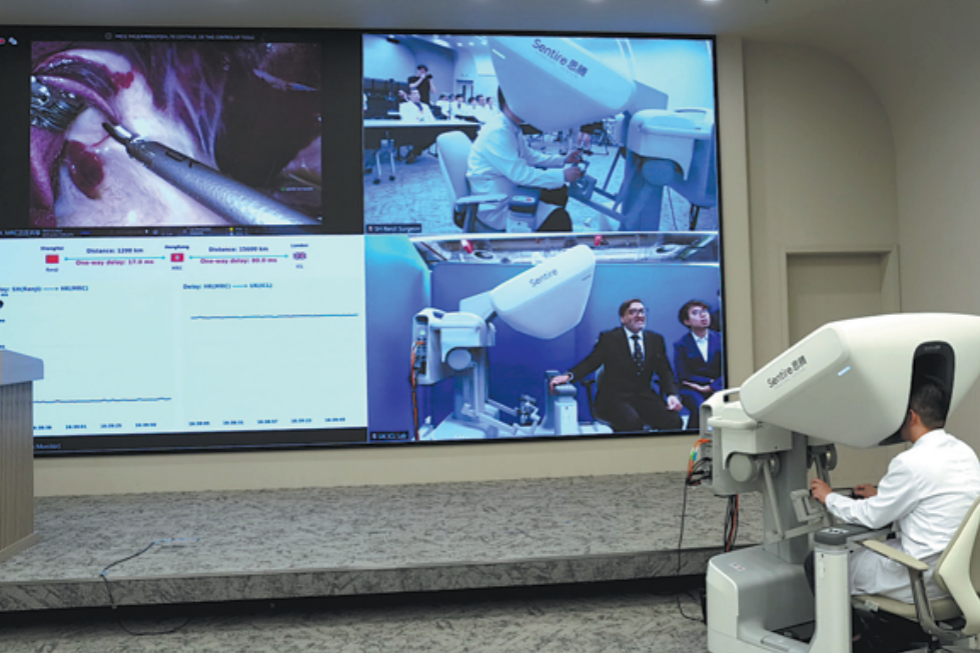Vocational schools set to aid poverty alleviation


Coronavirus
The coronavirus outbreak has tested relief officials, as widespread production stoppages and travel restrictions forced millions of migrant workers-usually the breadwinners in rural families-to sit at home idle and unpaid.
The disruption to logistics chains and flagging consumer demand have dampened sales of farm produce and other specialties that are central to rural incomes.
To offset the impact, policies have been rolled out to support the rural poor by slashing the unemployment rate, promoting sales of farm produce, helping poverty relief projects to restart, and supporting the most vulnerable people.
Figures provided by the poverty alleviation office show the measures are working. For example, by the end of last month, 26 million impoverished rural workers had found jobs in urban areas, nearly double the number two months ago.
Many workers who were stranded in their hometowns after Lunar New Year have made it to jobs in factories and construction sites thanks to transportation arranged by authorities that allowed them to travel to urban areas without stopping, thus avoiding possible infection en route.
Authorities have also mobilized government agencies, businesses and nonprofits in wealthy provinces to purchase goods from rural regions hit hard by the virus.
Figures from the office show that about 40,000 "poverty relief products"-whose production involves or benefits impoverished workers-have been identified, and goods worth 32 billion yuan ($4.5 billion) were sold between February and the end of last month.
Speaking in Beijing last week, Liu said the office will ensure that prices are fair and quality is good, and he pledged to crack down on those who profit in the name of poverty relief.
Priorities
Poverty alleviation has been a major topic since the campaign started in 2012. It is expected to attract more attention this year as officials have reiterated their determination to reach the zero-poverty goal on time, despite the epidemic.
As part of nationwide efforts to empower the rural poor and end the cycle of poverty, authorities have worked to slash dropout rates in rural primary and middle schools.
Huang Huachun, a deputy to the National People's Congress, is campaigning for more central government funding for high schools in the poorer western provinces, where authorities are struggling to keep up with rising education costs.
At present, the operating costs of high schools-not including funding for dormitories or tuition-are paid by local governments.
In light of central government requirements for less-developed regions, Guangxi has stepped up funding for high schools over the three years to 2022, with annual investment per student rising from 600 yuan to 1,000 yuan.
However, Huang, deputy head of a high school in Chongzuo, Guangxi, said the increase has been dwarfed by rising education costs, which hit 1,443 yuan per high school student last year, nearly twice the 2014 figure. The money is mainly spent on projectors, other equipment and training sessions for teachers.
"Many inland provinces are scrambling to keep up with the rising costs," she said.
The lack of funding may see local governments divert money intended for dormitories and other areas into school operations, but insufficient dormitory facilities have already forced some schools to allow students to live off campus, driving up costs for families, she added.
She suggested that the central government should contribute 80 percent of the operating costs and local government pay the rest, echoing primary and middle schools.
"I recommend that the central government provide more funding for high schools in inland provinces, so students can enjoy quality education," she said.
Meanwhile, Yang Jinghua, a member of the Chinese People's Political Consultative Conference, has proposed the development of farming-related vocational education in inland provinces to facilitate local revitalization.
Yang said some agricultural schools have very limited farming-related majors, and only about 10 percent of their graduates choose farming as a career.
She suggested that local and central governments provide incentives, ranging from tax breaks to better financing programs, to encourage schools to offer farming majors, and also improve the image of farming via publicity campaigns.
She said vocational schools should improve contacts with middle schools to offer students a wider range of opportunities, rather than simply going on to high school.
Relevant majors should also be made available at colleges, so vocational school graduates can further their studies, she added.























